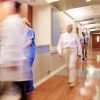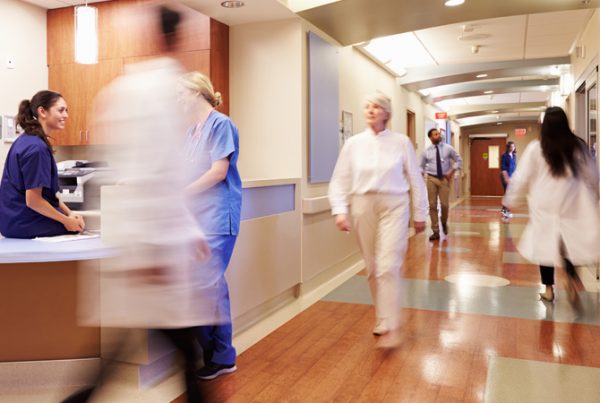
Drug Abuse rates are steadily increasing in the United States, and the doctors that prescribe some of these addicting drugs leading to drug abuse are not immune to substance abuse and addiction themselves. Although they know first-hand what drug abuse and the subsequent risks are, approximately one in ten physicians develop substance abuse problems during one point or another in their medical careers. Substance abuse among physicians is connected to a higher chance of suicide. There is a 40% higher occurrence of suicide among male doctors when compared to their male peers, and 130% higher occurrence of suicide among female doctors when compared to their female peers. Additionally, alcohol abuse among female surgeons is higher than female physicians in any other medical specialty.
Statistics in a Study Reported by Mayo Clinic
There was a 5-year longitudinal cohort study of 904 physicians who were enrolled in Physician Health Programs (PHP) across sixteen states.
- 10%-12% of physicians will develop a substance use disorder during their careers
- 87% were male
- 3% were there for alcohol abuse
- 9% were there for opioid abuse
- 9% were there for stimulant abuse
- 9% were there for other substances
- 50% were there for multiple substances
- 9% have had a history of intravenous youth
- 17% had received previous treatment for substance abuse
Common Symptoms of a Physician with Substance Abuse Problems
(According to the Medical Student Research Journal)
- Socially removed
- Decreased performance
- Spending more time at work
- Change in diet/appearance
- Inaccessibility/frequent absences
- Defensiveness/irritability/conflicts with co-workers
- Unusual drug orders
- Domestic distress
- Mood swings (euphoria/ depression/anxiety)
- Sexual promiscuity
- Smell of alcohol
- Heavy drinking at events
- Problems with law enforcement
- Excessive sweating
- Patient complaints
- Frequent illness/injury
- Isolates themselves in office
- Ataxic gait/slurred speech/tremors
Why is this a Growing Epidemic?
Being submerged in a field where prescriptions to addictive substances are easy to obtain, combined with the stress experienced in this profession, and a possible predisposition to psychological disorders and addiction generates a high risk for substance abuse.
- Underlying Influences
It is important to note that environmental factors are not the only precursors to drug abuse among doctors—genetic predispositions, underlying psychological disorders, and an interest in experimentation as youths are also components. Psychological disorders and drug abuse are, more often than not, linked, and if they already have struggles with these psychological issues, then they may worsen due to the stress experienced in medical school. It has been reported that three-fourths of doctors abusing drugs have a family history of addiction and substance abuse.
- The Stress in Medical School
In Medical school, there is immense pressure to compete within a stressful environment in order to study and prepare for a career in the medical field. There have been some studies reporting that medical students abuse benzodiazepines, alcohol, and opiates at a greater rate than their peers. One study reported that 17% of students in medical school used cocaine due to the amount of studying needed to pass exams and begin their residencies. Because of prevalent drug experimentation in medical school, some medical students may choose to enter into specialties where drugs are more easily accessible and their experimentation could grow into an addiction.
- Long Hours
Being a doctor can mean that there are longer days at work than other profession, causing emotional, mental, and physical exhaustion. These long hours have a tendency to effect their own health, sleep schedules, and family life.
- The Hardships of Being a Humanitarian
Although becoming a doctor is often a philanthropic mission, it’s also very stressful because helping patients become healthier is a gamble, sometimes there is ultimately nothing a doctor can do, which a depressing reality. Anxiety can also be caused because some patients are difficult to deal with, as well as argumentative, noncompliant, and all doctors want to do is care for them so that they can eventually care for themselves.
- The Stress in Medical Practice
The risk of doctors using substances to cope is heightened by demanding work weeks, an overwhelming amount of patients, and a lack of therapeutic support. It’s easy to comprehend why doctors may mitigate these hardships of their profession through self-medication and substance abuse.
- Easy Access to Prescriptions
As a doctor, the availability of addictive substances is plentiful. Although illegal, they can write their own prescriptions, or a fellow physician can write them as well, which conclusively makes sense why the abuse of prescription substances can be higher within the medical profession, and even higher in regards to anesthesiologists.
- Silence Among Colleagues
According to the Hippocratic Oath, an oath taken by physicians to uphold ethical standards of the profession, fellow physicians are supposed to report when their colleagues are engaging in malpractice by treating patients under the influence. However, there is a lack of reporting which causes an increase in addiction, eventual loss of licensure, and lack of treatment.
PHP Program Participants by Medical Specialty
(Survey taken by the Profession Resource Network)
- Anesthesiology 21%
- ER 18%
- Surgery 6%
- Family Medicine 6%
- OB/GYN 6%
- Radiology 6%
- Pathology 6%
- Orthopedics 3%
- Neurology 3%
- Psychiatry 3%
Drug Abuse among Anesthesiologists
Drugs of choice vary among physicians depending on what their specialty is. Although alcohol is the most common substance abused, only around 10% of anesthesiologists enter treatment for alcohol. Most anesthesiologists enter treatment for potent intravenous opiates and opioids such as fentanyl and have a higher rate of substance abuse than physicians in other specialties. This is because anesthesiologists are around more powerful and addicting drugs that any other specialties. Other theories of why drug abuse is most common in this specialty are boredom, stress from the delicate nature of this medical practice, and physicians attracted to this area of study are preemptively deciding to be around an area of expertise where mind-altering substances are within an arm’s reach at all times. A 2003 study in Florida showed that although anesthesiologists only made up 5.6% of Florida’s physicians, they accounted for about 25% of addicted physicians. Anesthesiologists have the highest rate of narcotic abuse and intravenous drug use of any other medical specialty.


 Contact Us
Contact Us
For all Strathmore House admissions and general inquiries, please contact Hubbard White at (857) 342-3726 or Hubbard@eastcoastrs.com
You may also use this form for fast response to your questions.






